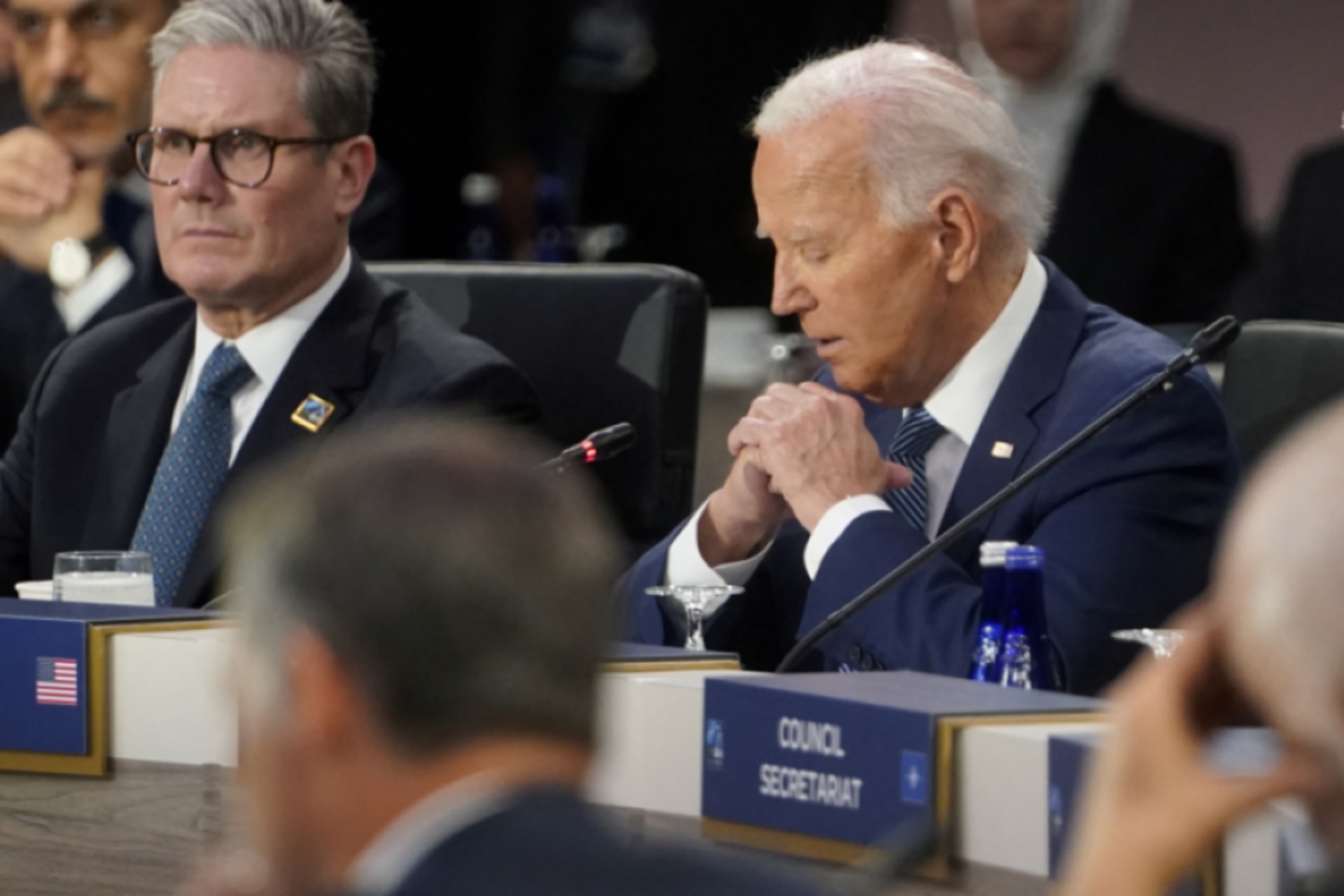Global Threats Loom if Biden Drops Out
The U.S. presidential election isn’t just a domestic affair. What Biden does will have major consequences for foreign policy and world security.
Originally published at U.S. News and World Report

Track the presidential candidates and their positions on global issues in our guide.
—
Around the globe, U.S. partners and allies are closely monitoring the American presidential election, and they are more than a little unsettled by President Joe Biden’s weak debate performance and the ensuing calls for him to drop out of the race. Meanwhile, the laser-focus on Biden’s fitness has created a perception of chaos and uncertainty in Washington that Moscow and Beijing could not be happier about.
As a scholar of European security, I am nervous about what is going to happen—not just because of what Biden’s dropping out (or not dropping out) will mean for the outcome of the November election, but also because of the international implications of whatever happens. The U.S. presidential election is not just a domestic affair. Biden’s decision will have major consequences for U.S. foreign policy and global security.
If Biden leaves the race, it will inevitably raise questions about whether he is fit to serve the remainder of his term. Dropping out would render him a lame duck at home and on the international stage. It could also embolden adversaries to test the strength of America’s resolve. That could mean another round of Iranian-backed Houthi rebel attacks on global shipping in the Red Sea and Gulf of Aden; a Russian escalation in Ukraine; an expanding threat from North Korea’s nuclear arsenal and its arms trade with Russia; or Chinese provocations towards Taiwan or the Philippines. A U.S. president perceived as unable to do his job leaves the West without a steersman in dangerous times.
If Biden drops out, it will set off a messy succession process in the Democratic Party. The United States will be more consumed by party politics than if the race remains between Biden and Donald Trump. There has never been a case of a presumptive nominee dropping out so late in the game, and if Washington policymakers are consumed by a succession race, they won’t have bandwidth to address international crises that may erupt in the run-up to November.
Among U.S. treaty allies in NATO, Japan, and South Korea, Biden’s leaving the race would raise anxiety to entirely new levels. Biden has been a stable, reliable U.S. partner after the chaotic, unpredictable Trump presidency. Many allies have pinned their hopes on Biden’s mantle of continuity with post-Cold War American foreign policy—better the elderly president you know than the younger candidate you don’t. In a world of increasing disorder, instability in the United States is not what allies want. But it is exactly what adversaries hope for.
There is a possibility, of course, that a younger, more forceful Democratic Party candidate could revive an image of strength and vitality, perhaps even turn the election around for the Democrats and burnish the U.S. image abroad as Barack Obama did in 2008, reassuring allies tired of George W. Bush’s “with us or against us” American unilateralism. John F. Kennedy, too, was young and relatively inexperienced, yet he arguably handled the Cuban Missile Crisis better than some of his more seasoned advisors might have.
A compelling new Democratic candidate could also strengthen the image of American democracy worldwide. Selecting a new nominee would demonstrate that one of the oldest democracies in the world is a transparent system in which elites are responsive to the concerns of the population and an elected leader can be challenged publicly and by his party, unlike autocrats Vladimir Putin or Xi Jinping. It is this principle of accountability that continues to make the democracy of the United States an attractive model around the world, despite its current polarization.
But everything would have to come together perfectly to make the best-case scenario possible: a dignified withdrawal of Biden, an orderly succession to another candidate who would be a strong and powerful Democratic Party challenger to Trump.
In reality, the likelihood of chaos and instability is probably higher at this late point in the race. For U.S. foreign policy and global security, the risk of Biden dropping out might outweigh the rewards—as long as American friends and foes are convinced that he can still perform the toughest job in the world.
